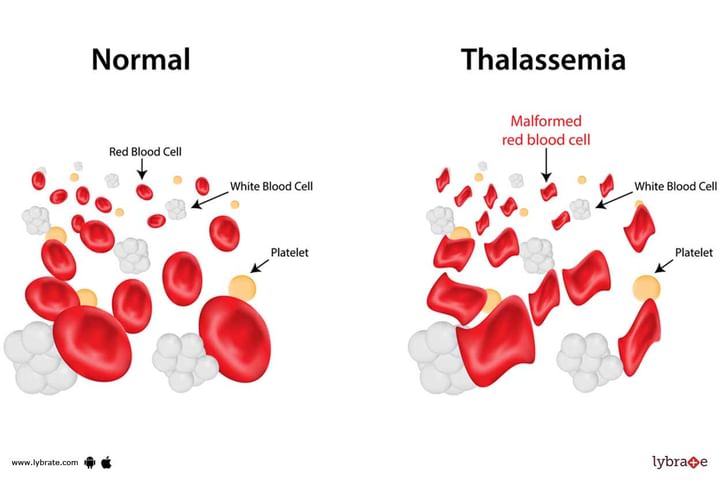Thalassaemia - Know Forms Of It!
Thalassaemia is one of the most difficult hereditary diseases to live with. Even though there is no cure, parents can prevent their child from being born with this terrible disease if they are careful.
However, preventing the spread of disease in the world has proven difficult due to the lack of proper awareness about the condition. This is why the World Health Organization established May 8th as World Thalassaemia Day.
Importance of World Thalassaemia Day
8th May is dedicated to past and present Thalassaemia patients in the world, who are surviving with the condition. It is also a day when the medical organizations around the world come together to plan and raise awareness about the disease. Camps are set up in various cities and villages to educate people about the dangers of Thalassaemia and teach them about prevention measures of it. On World Thalassaemia Day, hospitals and clinics promote pre-marriage genetic testing that can help prevent hereditary conditions in the family. In India alone, 7,000-10,000 children are born with this disorder every year.
Aside from spreading awareness, there are other important reasons for celebrating World Thalassaemia Day. These include -
1. To motivate healthy people in the world to donate blood regularly in order to reduce the suffering of patients of Thalassaemia
2. Motivating doctors to take care of the special needs of such patients
3. Motivating people suffering from the disease to undergo treatment, as soon as they can, to reduce complications
4. To motivate the government of various countries around the world to build better health care facilities for people suffering from Thalassaemia
5. To reduce Thalassaemia related deaths around the globe
Types of Thalassaemia
Thalassaemia is a hereditary condition, passed on from parents to their children. The condition results in improper and insufficient red blood cell and haemoglobin formation. This causes anaemia in the body.
There are two main types of Thalassemia -
1. Alpha-thalassemia- In this type, up to four genes are involved. Two genes are passed down to you from each parent. In case of a single mutated gene, you will not suffer from the condition, but you become a carrier. In the case of two mutated genes, the symptoms of the disease will be mild. In the case of three mutated genes, the symptoms will be severe. Most children with four mutated genes are stillborn, while a few may survive for a short period after birth.
2. Thalassaemia minor- Two genes determine whether an offspring will suffer from thalassaemia minor or not. If one of these two genes is mutated, the child will have mild symptoms of the disease. If both the genes are affected, the child will be healthy at birth but will develop severe thalassaemia within the first two years of life.



+1.svg)
